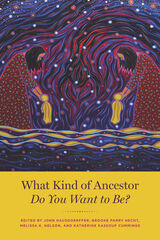
You are old, ill, in pain, and your doctor asks you what you want to do about it. You may be uncertain but you're definitely not alone. By the year 2020, some 50 million Americans will be over sixty-five, and as the nation ages we must all ask what we ought to do about the health and medical care of our elderly. Our response will have profound consequences, not just for individuals and families, but for society as a whole. This book helps us start to form an answer.
To make decisions about medical care in old age, we need to know more about the reality of being elderly and sick, and Choosing Medical Care in Old Age gives us the opportunity. Muriel Gillick, a noted physician who specializes in the care of the elderly and in medical ethics, presents a panoply of stories drawn from her clinical experience. These encounters, with the robust and the frail, the demented and the dying, capture the texture of the experience of being old and faced with critical medical questions. From the stories of older people struggling to make choices in the face of acute illness, stories that are often poignant and sometimes tragic, Gillick develops broad guidelines for medical decision–making for the elderly. Within this framework, she confronts particular concerns and questions. When are certain procedures too burdensome to be justified? What are unacceptable risks? Should family members serve as exclusive spokespersons for relatives who can no longer speak for themselves? Gillick's bold and personal prescription for medical care for the elderly calls for a change in the way medicine is understood and practiced, as well as for changes in the institutions that serve the elderly, such as hospitals and nursing homes. An intelligent and deeply compassionate inquiry into the difficult issues and real–life dilemmas raised by current practices, her book offers a first step toward those changes.



A provocative call to rethink America's values in health care.
READERS
Browse our collection.
PUBLISHERS
See BiblioVault's publisher services.
STUDENT SERVICES
Files for college accessibility offices.
UChicago Accessibility Resources
home | accessibility | search | about | contact us
BiblioVault ® 2001 - 2024
The University of Chicago Press









